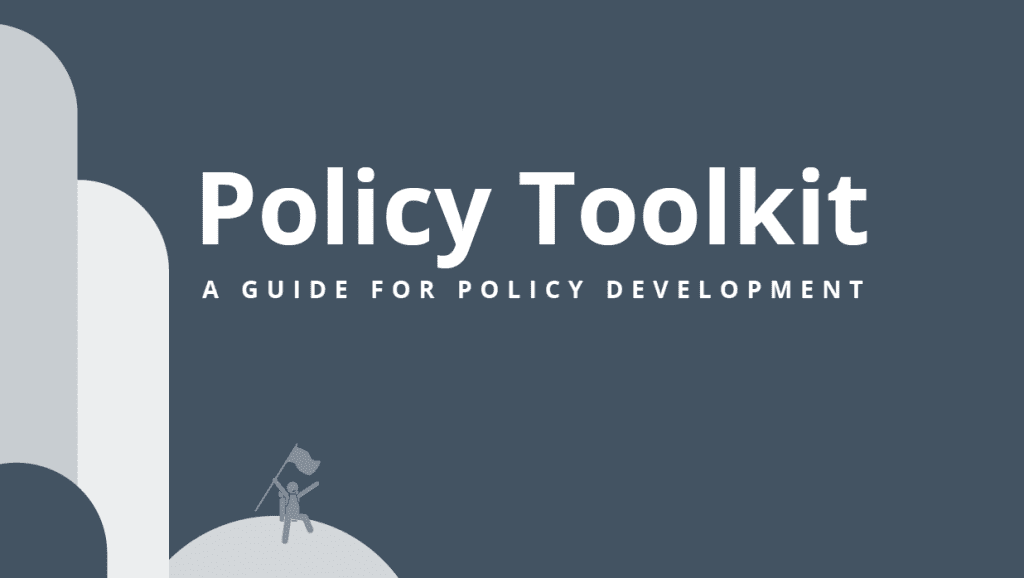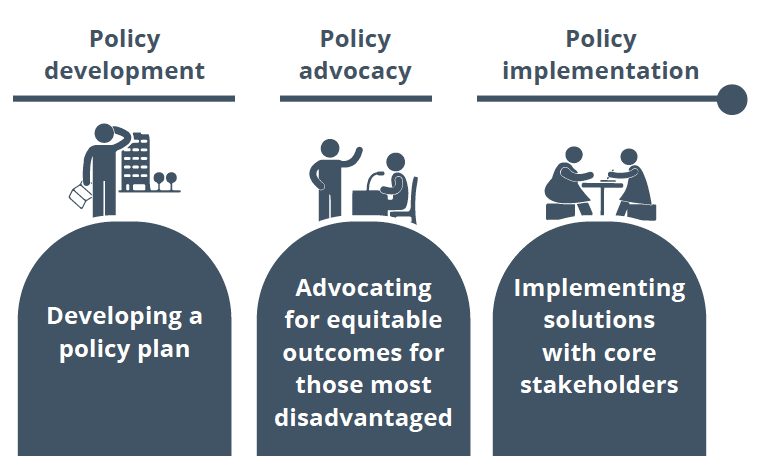
Blog post co-written by Ritika Sharma Kurup, senior director of learning and activation, and Josh Davis, vice president of policy and partnerships.
Changing policies is a powerful way to transform systems to support youth and families of color and those experiencing poverty. To help communities navigate this complicated work, StriveTogether partnered with PolicyLink to gather learning from leaders across the country.
Together, we created a policy toolkit — a comprehensive resource for local networks embarking on or deepening strategic policy work alongside their communities. It features tools, worksheets and case studies for three policy phases: development, advocacy and implementation.

Our goal is to make policy work accessible for communities of all sizes across the country, using StriveTogether’s approach of accelerating learning to shift practice and move results. In 2018, StriveTogether awarded seven Cradle to Career Network communities and coalitions with three-year grants to advance policy change. Grantees engaged policy leaders, led grassroots advocacy and coordinated efforts through state and local networks — and learned every step of the way.
Here are a few examples of wins:
- Cradle to Career Network members across Texas joined forces behind House Bill 3, which represents an investment in education and educators of $6.5 billion.
- In Dayton, Ohio, Learn to Earn Dayton used data highlighting inequities to improve college enrollment and graduation rates, leading to policy changes at three local universities.
- A statewide coalition across Minnesota mobilized parents to amplify their voices and expand their capacity in advocacy and policy work.
Through this investment, the growing policy team at StriveTogether supported communities to try new things, documenting our successes and setbacks through stories and data. We created processes to capture emergent learning and reflections to identify what we were learning across the Network and with our national partner, PolicyLink. This work resulted in the policy toolkit, an accessible frame of how communities can approach policy change.
This process shows us that it’s not enough to lead innovative work. To create sustainable change, we have to take time for reflection to understand what we’re learning. In this case, dedicating time to cultivate learning allowed us to build a template that will be valuable not only to the Cradle to Career Network, but the broader field. Read on for key insights from this work, and download the complete policy toolkit at the link below.
Equitable policymaking starts with an inclusive process. Building equitable policy requires building relationships with community residents, building their capacity to take up this work, and authentically and intentionally engaging them throughout the entire process.
Policy shifts are sequential but not linear. The toolkit identifies three distinct phases of policy work: development, advocacy and implementation. While each phase builds upon the last, progress through the phases isn’t strictly linear.
Successful policy shifts practices. Policy implementation is often an overlooked step. Successful implementation requires engagement of new players, commitment to ongoing monitoring and evaluation, and adjustments based on learnings.
Policy work is rooted in broader systems work. Policy efforts are most successful when they are developed as a part of an overall community plan for systems transformation, including a mix of both practice and policy shifts. The toolkit shares how communities can think about their policy strategy in the context of their broader plan.





